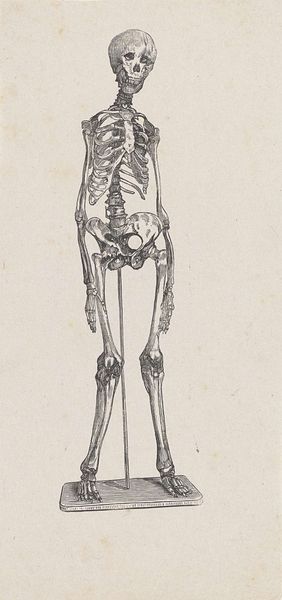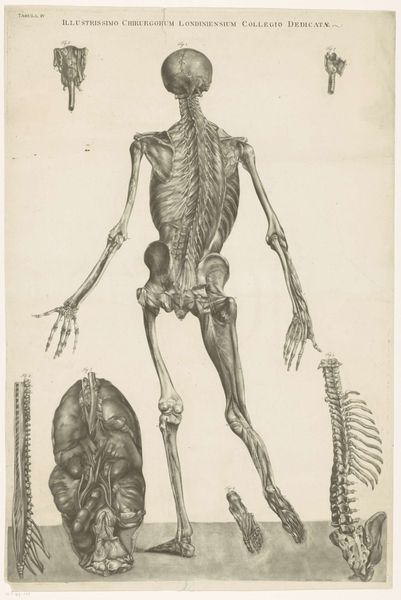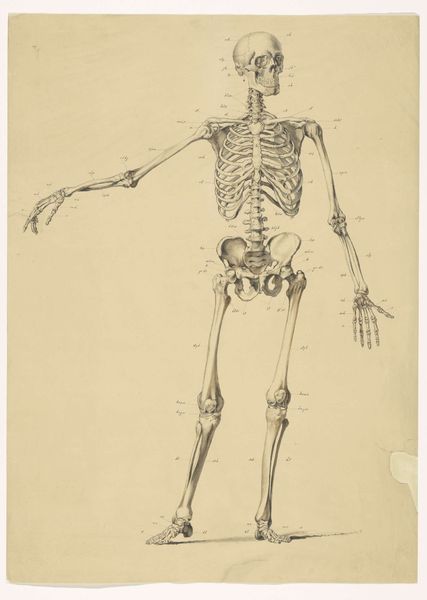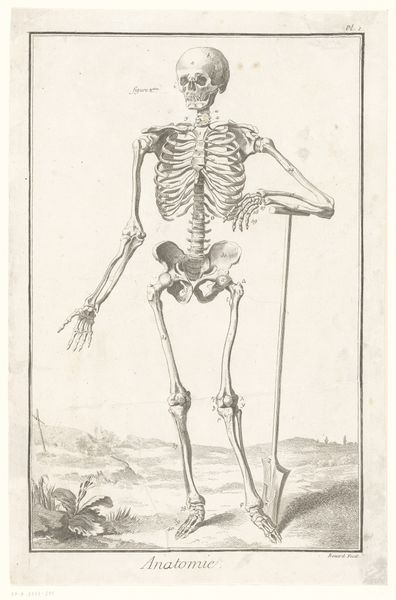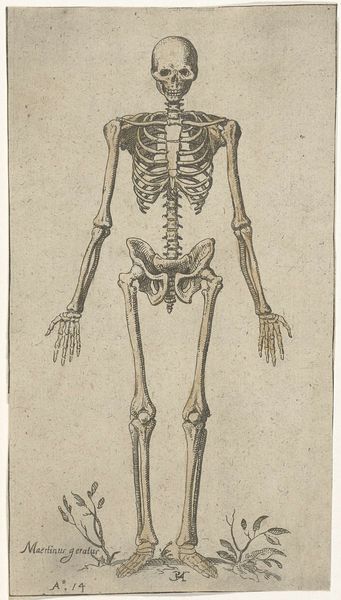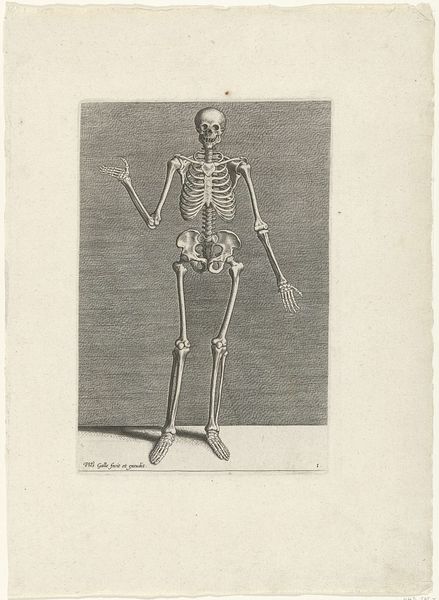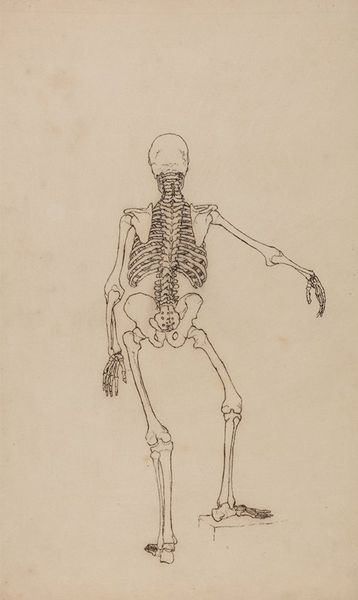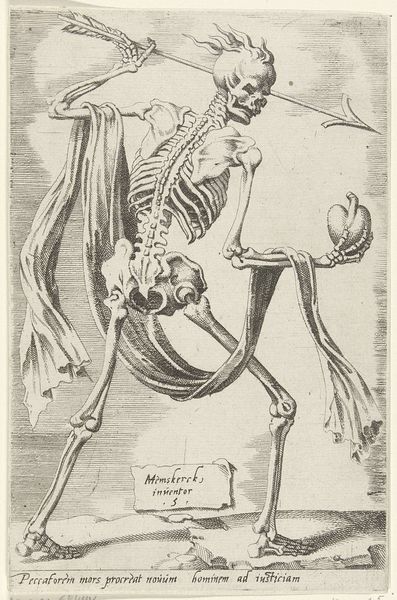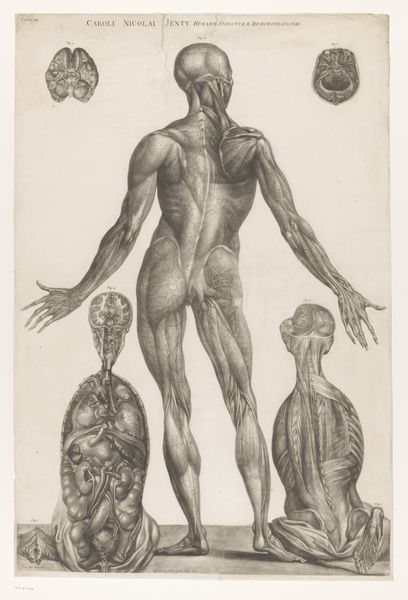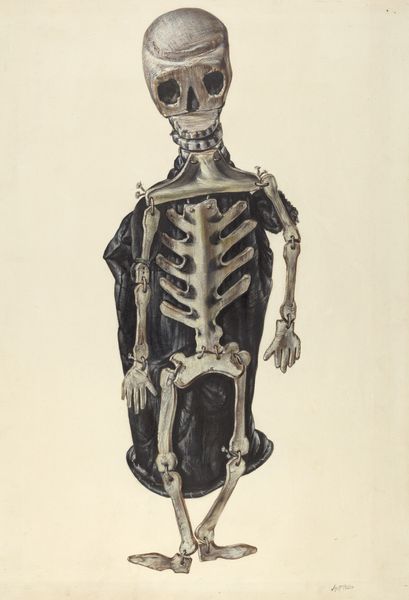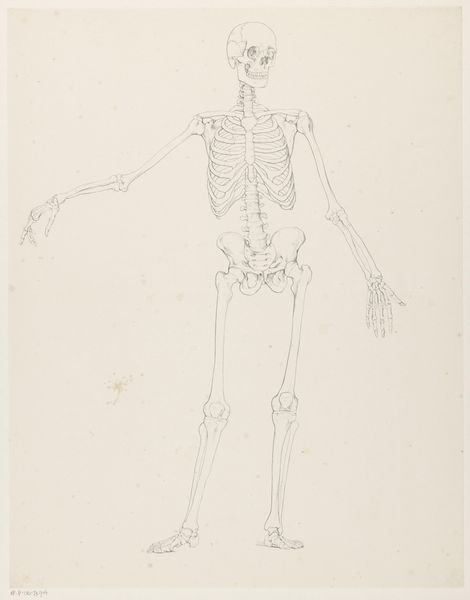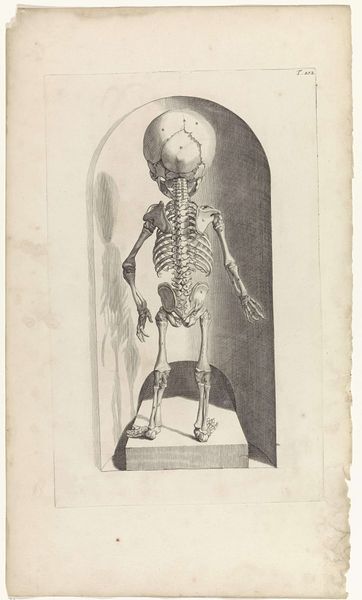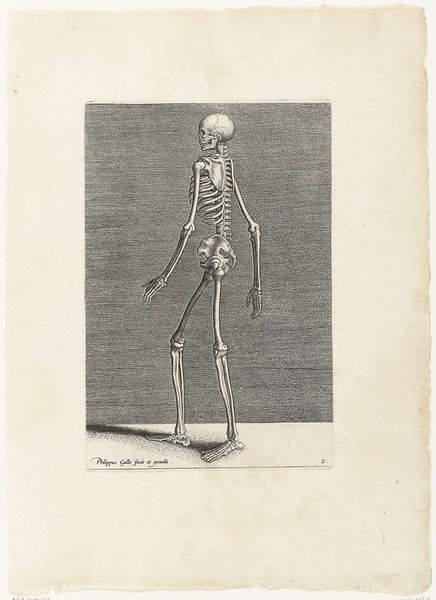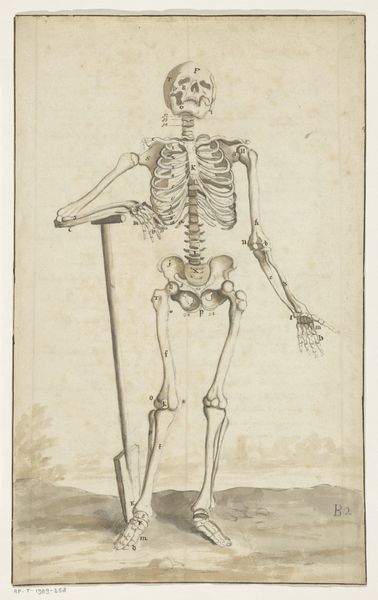
drawing, print, engraving
#
portrait
#
drawing
#
baroque
# print
#
pencil sketch
#
engraving
Dimensions: height 906 mm, width 609 mm
Copyright: Rijks Museum: Open Domain
Curator: Edward Fisher's "Anatomische studie van een man," dating from 1732-1785, presents a stark image in the combined media of drawing, print and engraving. Editor: My initial reaction is one of anatomical curiosity mingled with almost morbid fascination. The linear precision feels very cold. Curator: I agree, it does. The detailed rendering is reminiscent of earlier "Memento Mori" images and highlights our inescapable mortality. This type of art historically served to teach important values and ideas related to mortality and spirituality. The full skeletal figure looms above, emphasizing our corporeal shell. Editor: And note how Fisher directs the eye—the stark contrasts between the light paper and deeply engraved lines define the form with such deliberate draftsmanship. The use of line, shade, and texture becomes incredibly important in the overall compositional analysis of the image. Curator: I see in this image not just anatomical study, but also the very baroque sense of drama. Observe, for instance, how some internal organs are included. They show the inside of the body; each depicted to teach where it all sits and how they all work in combination with other systems, and that reveals the scientific progress. Editor: I agree it has pedagogical purpose but the aesthetics lean toward drama more than science; the use of monochromatic media helps highlight shape and internal logic. It's almost diagrammatic, except made beautiful. Curator: In that regard, the picture can also be viewed in relation to what are core parts of humanity—scientific knowledge versus visual perception of the real human. This is about knowledge of ourselves, physically and, perhaps, metaphorically. Editor: It does indeed evoke deep introspection beyond mere anatomical scrutiny. A stark rendering that holds more resonance when you consider what the skeleton, veins, and organs truly stand for, it is beautiful and very macabre.
Comments
No comments
Be the first to comment and join the conversation on the ultimate creative platform.
